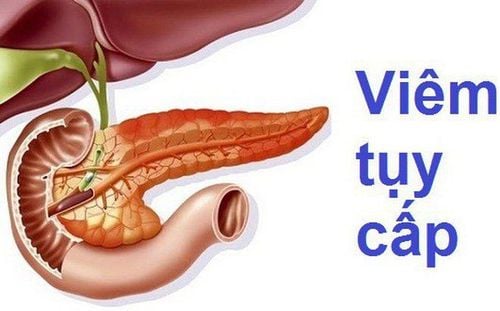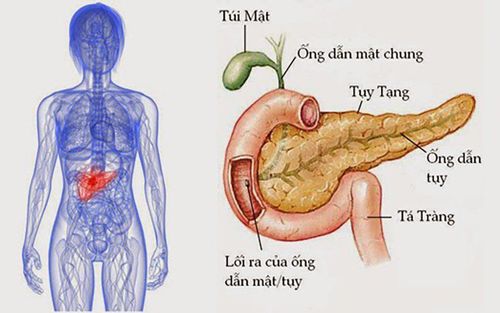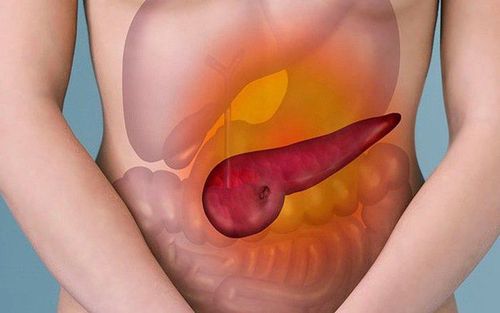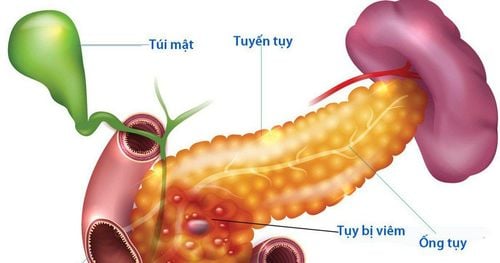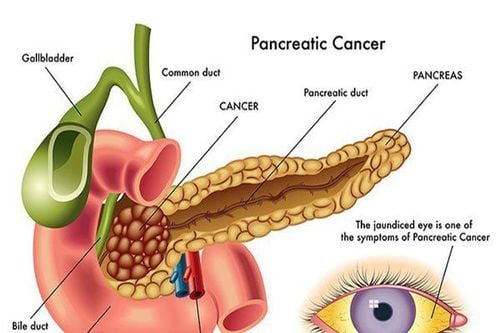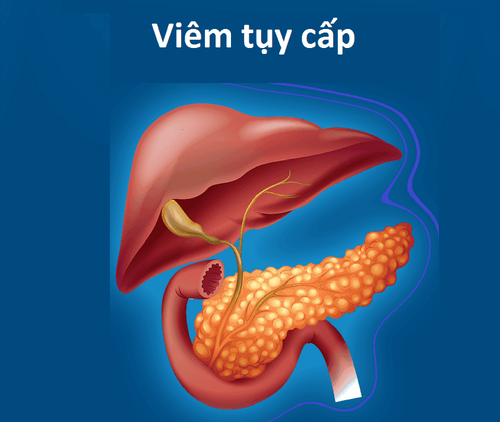This is an automatically translated article.
The article is expertly consulted by Master, Doctor Duong Xuan Loc - Gastroenterologist - General Surgery Department - Vinmec Danang International General Hospital.Exocrine pancreatic insufficiency is a disease caused by a deficiency of exocrine pancreatic enzymes, leading to a decrease or inability to digest food leading to malabsorption.
1. What is exocrine pancreatic insufficiency?
Pancreas is an organ of the digestive system with exocrine and endocrine functions. The pancreas is located behind the peritoneum and stomach, close to the posterior abdominal wall, across the lumbar vertebrae. Every day, the exocrine pancreas excretes about 1000ml of pancreatic juice. This amount of pancreatic juice is most secreted when eating: just looking, smelling, thinking about food or chewing and swallowing can secrete 20% of pancreatic juice during a meal, when food enters the stomach, it will secrete 5-10 % pancreatic juice, and when food reaches the intestines it is 70% pancreatic juice.Pancreatic juice contains many bicarbonate salts and many enzymes that help digest most foods. Groups of enzymes include:
Protein digesting enzymes (trypsin, chymotrypsin, elastase, carboxypeptidase), glucid digesting enzymes (amylase); Lipid-digesting enzymes (lipase, phospholipase A2, cholesterol esterase); Enzymes that digest nucleic acids (ribonuclease, desoxyribonuclease).
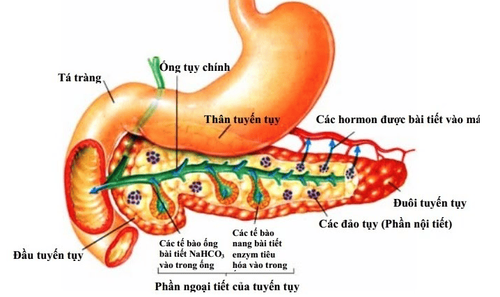
Exocrine pancreatic insufficiency is a disease caused by deficiency of exocrine pancreatic enzymes, leading to a decrease or inability to digest food, leading to malabsorption.
2. Causes of exocrine pancreatic insufficiency
Some causes of exocrine pancreatic insufficiency include:
Chronic pancreatitis: Chronic pancreatitis is one of the causes of exocrine pancreatic insufficiency. Chronic pancreatitis can damage the cells that produce digestive enzymes. That is why the majority of patients with chronic pancreatitis will also have exocrine insufficiency.
Acute pancreatitis : Untreated acute pancreatitis will develop into chronic pancreatitis and thus increase the risk of exocrine pancreatic insufficiency.
Celiac disease accounts for 20% of the causes of exocrine pancreatic insufficiency : Celiac disease is a disease associated with the inability to digest gluten. The disease leads to symptoms such as diarrhea, fatty stools, etc. In this case, the symptoms can also cause exocrine pancreatic insufficiency.
Short bowel syndrome, shwachman-diamond syndrome: A very rare genetic disease affecting the bones and pancreas. People with this syndrome will often have exocrine pancreatic insufficiency, if not treated, it can easily lead to exocrine pancreatic insufficiency.
Besides, some other causes of the disease such as: Diabetes, Zollinger - elison syndrome; Cystic fibrosis; Inflammatory bowel disease.

3. Symptoms of exocrine pancreatic insufficiency
Symptoms of exocrine pancreatic insufficiency include:
Patients with malabsorption causing weight loss Digestive disorders: Diarrhea, fatty stools; Epigastric pain that recurs many times; Reduced absorption of vitamins such as: vitamin A (causes vision loss, night blindness); vitamin K (Blood clotting disorder); vitamin D (causes osteoporosis); vitamin E (atherosclerosis, frequent fatigue, decreased muscle tone).

Please dial HOTLINE for more information or register for an appointment HERE. Download MyVinmec app to make appointments faster and to manage your bookings easily.





